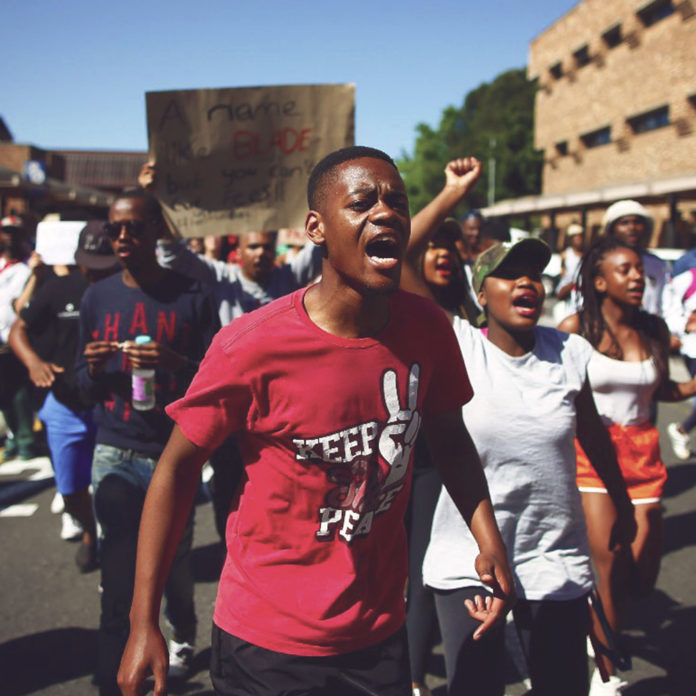
Blessed are the ‘Others’.
Have you ever been in a conversation when suddenly someone whips out the phrase ‘those people’ and it suddenly feels like a huge wall has just been built?
It’s happening in South African Universities right now.
‘Those people’
‘Those students’
‘Those animals/thugs/hooligans’ and perhaps some even less favourable terms.
Once someone has been “othered”, it is a lot easier to be on the side that is eager to “release the hounds!” or whatever sense of justice or punishment we think they deserve. Because they are “other”, they are different. They are not us.
PLEASE DON’T SHOOT MY DAUGHTER
I had breakfast with someone this morning who told me a story of two of his mutual friends.
One of his friends (who in his past had been an activist and fought similar struggles) made a statement about how the police should be allowed live ammunition and should go in and shoot… “those people.”
His second friend jumped in and shared that his daughter was one of the people marching. “Please don’t encourage the police to shoot my daughter!”.
OTHERING VS INVITING
We have seen this play out on the international stage with the refugee crisis across Europe. It is a lot easier to keep “those people” or “foreigners” or “those muslims” or “possible terrorists” outside of our borders, than when they become families with names and faces and stories.
It has been the messed up narrative of South Africa where artificial constructs, such as race, have been used to differentiate between “us and them”. And while they remain a “them” it is far easier to deal with them at a distance and with more suspicion, dehumanisation and violence than if they were an “us”.
Jesus springs to mind. Whatever your thoughts or feelings about who He was, if you follow the stories, He was never someone who “othered” people. We see stories of people trying to “other” those around Him to “protect Jesus” or something.
Yet every time, He seems to call them closer. Women, children, a man with leprosy, a Samaritan woman at the well, even a Pharisee in the middle of the night (the one person we would be okay with Jesus “othering”). “Bring them closer. Let them come to me!”
You see Jesus saw in every person the spark of divinity, the image of the creator that they had been created with.
BREAK DOWN THE WALLS
I have found that the best way to break down these othering walls is to engage with people different to us and listen to their stories. This doesn’t mean I end up agreeing with everyone I sit down with, but it means I will give myself a better chance to see their humanity. To maybe understand their path a little more and recognise how they ended up at this point.
One thing my wife and I have tried to do is host dinners which we call Deep Dive Conversation Dinners (but which really don’t need an official name) with the idea of bringing people with differing viewpoints together. You get into an online fight with me on social media? Hey, come sit across the table from me and share a coffee or a meal. Imagine if we could all do this more consistently.
At one point while I was part of the peacekeeping team at CPUT Bellville last week, some students started playing soccer. A bunch of us thought how amazing it would be if some of the police or private security dropped their armour and weapons for a few minutes and joined in. How would experiencing a moment of shared humanity impact on the bigger picture of violence, mistrust and negotiations?
How do we break down the othering? One thing South Africa needs most now is creative people who will think outside of the box in terms of bringing people together. In terms of being able to tear down the walls of othering and help us all realise that we can build this thing together somehow.
While we wait for that, who is someone that you tend to ‘other’ that you could reach out to and share a space with this week?
